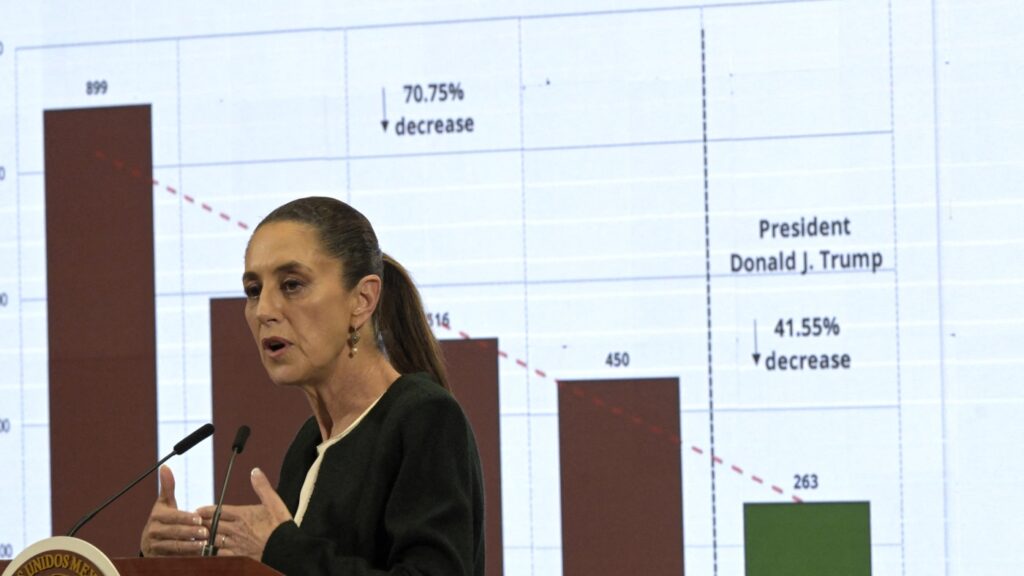In a recent development, President Trump announced a temporary break on tariffs for Mexican goods covered under the U.S-Mexico-Canada Agreement (USMCA) following a conversation with Mexican President Claudia Sheinbaum. This decision came after Trump had initially imposed 25% tariffs on Canadian and Mexican goods, then provided a one-month reprieve to the Big 3 U.S. automakers. The break, lasting until April 2, coincides with Trump’s plan to implement reciprocal tariffs on goods from various countries.
President Sheinbaum, during a respectful phone call with Trump, highlighted a significant decrease in fentanyl seizures at the border, urging collaboration rather than policies that harm the Mexican people. This dialogue led to a shift from potential retaliatory measures to a celebration in Mexico.
On the other hand, Canada, despite enhanced border enforcement efforts, did not receive a similar tariff break. Prime Minister Justin Trudeau anticipates an ongoing trade war with the U.S. and mentioned engaging in talks for a temporary exemption from the tariffs.
These recent tariff dynamics underscore the intricate relationships and negotiations between countries, showcasing the delicate balance of trade policies and international cooperation. The evolving situation highlights the importance of diplomatic dialogues and strategic decisions in navigating trade relations for mutual benefit.

